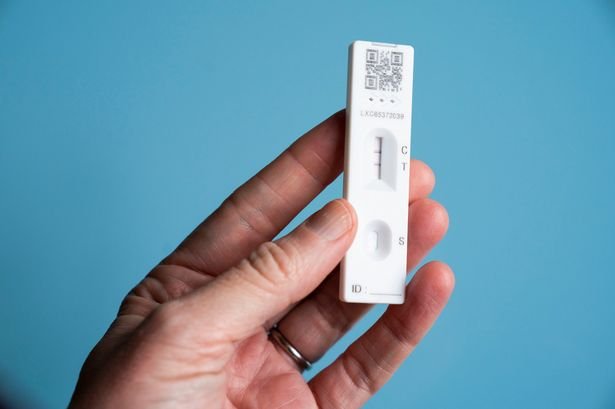
Newcastle must ‘lower’ its Covid alert level to ‘green’ – and Director of Public Health Prof Eugene Milne has said he does not expect recent increases in cases to continue, “unless there is another variant”.
Professor Milne was speaking at a meeting of Newcastle City Council’s City Futures Board, and he told the meeting it was “the appropriate time” to both lower the alert level and reassess the the city’s “Covid control plan”.
He said recent increases in Covid-19 cases had started to “level off”. The city’s rate of Covid-19 cases per 100,000 population over the past seven days is 484. This is higher than the figure for the whole of the LA7 local authority group, it is 430, while in the whole of the North East it is 404.
Read more: Covid-19 rates rise by up to 50% in the North East as UK hospitalizations also rise
By comparison, the national figure is 614, Prof Milne said. Talking about the numbers, he added: “What’s remarkable is that over the past week these numbers have been stable day-to-day. The moving average may rise further, but at the moment there is has indications that the numbers may be stabilizing.”
Professor Milne said the increase in the number of cases over the past few weeks was expected for three reasons: the end of restrictions, the impact of the so-called “stealth Omicron” BA.2 sub-variant and the decline of the immunity in some vaccinees.
He said: “The first is that in every model I’ve ever seen, when restrictions are removed you’ll see an increase in cases as people change their behavior. The second reason is that we’re seeing the dominance of the sub-BA2 It is not more serious but it is more contagious and than the other sub-variant that we have seen [of Omicron].
“Tests passing through the Gateshead PCR lab are within the 80% range of being positive for BA.2. It is the dominant subvariant at some distance. Its high infectivity will have resulted in some of the increase. The third factor is some decrease in immunity. But as to the balance between these, it is very difficult to say. But what is common to all three is that we would not expect , at this point, to see increases continue unless there is also another variant.”
Although the soon-to-retire public health expert sounded an optimistic note, he raised concerns that the loss of much of the UK’s Covid testing infrastructure could lead to long-term problems.
“We have to keep an eye out for new variants,” he said. “And there are some concerns about the flow of data coming with the changes in testing and how that will change the way we report on it.”
Speaking directly on the Covid control plan, which was drawn up in the early months of the pandemic and implemented from June 2020, Prof Milne said it was time to reassess it in light of the plan government Living with Covid. He said: “Now is the time to get back to green alert, based on those criteria, but I also think it makes sense to move away from that kind of approach and now look at how we are going to manage Covid over the next few years.”
Prof Milne however warned that ‘a green answer is not the absence of an answer, we have to remember that’. The green alert level is defined as “business as usual” with “containment of a very limited outbreak” of Covid-19. However, in the report explaining the change, Professor Milne wrote: ‘This classification of response may no longer be suitable for the purpose of continued response and resilience.’
The City Futures Board agreed that the plan would be revised “to take into account the city’s ongoing Covid protection and response needs in light of changing circumstances and the need to prepare for resurgence/ variants/new waves of disease and health protective responses”.
Professor Milne drew attention to Newcastle’s success in limiting ‘excess deaths’ during the Covid-19 pandemic, the city had a rate of these well below the national average. He said the reasons were “quite complex”.
“It will be the fuel for doctorates,” he said. “But I think the performance of Newcastle hospitals throughout the pandemic has been remarkable – the Covid death rate has been incredibly low.” He also cited the city’s “partnership approach”.
The council’s outgoing leader, Councilor Nick Forbes – who will leave the council in the next local election after being unselected – echoed that. He added: “I think one of the reasons for that is the sense of partnership we’ve had – the collaboration and the feeling of coming together as a city.
“There is the way the people here have pulled themselves together when asked to do so, despite the suffering and the problems that may have been caused to them. I think all of this is demonstrable by the number of people living in this city that otherwise would have been. And At the level of the Covid control plan, it is important to note that going back down from the alert level to green does not signal that everything is back to…
More about this article: Read More
Source: www.chroniclelive.co.uk
This notice was published: 2022-03-17 06:00:00
